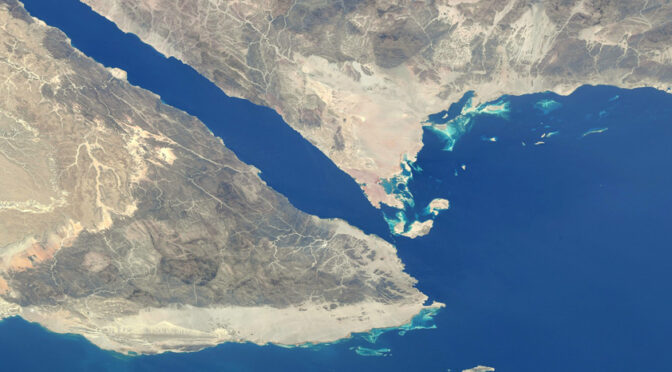By Dmitry Filipoff
For the next two weeks, CIMSEC will be featuring analysis submitted in response to our call for articles on the crisis in the Red Sea.
The Red Sea has become arguably the most hotly contested maritime region in the world. A vital maritime chokepoint is being fought over by a coalition of naval powers and a heavily armed Iranian proxy group, the Houthis. These events offer useful lessons on the exercise of naval power, as well as the crisis decision-making of militaries, commercial firms, and nation-states.
Below are the articles and authors that will feature during the topic week. This list will be updated further submissions as the topic week unfolds.
“Evaluating the Naval Response to the Red Sea Crisis,” by Colin Barnard
“Panda Express: A Proposed Convoy Operation in the Red Sea,” by Clay Robinson
“Naval Interoperability and NATO’s Naval Presence: Lessons from the Red Sea,” by CDR Augusto Conte, Spanish Navy, and Gonzalo Vázquez
“Basing U.S. Ships in Nearby Waters to Counter Threats in the Red Sea,” by Michael D. Purzycki
“The Strategic Abuse of Maritime Security in the Red Sea,” by Alexandru Cristian Hudișteanu
“China’s Calculated Inaction in the Red Sea Crisis,” by David Scott
“Analyzing the German Frigate Hessen’s Near-Miss of a U.S. Drone in the Red Sea,” by COL Jörg Stenzel, German Army, and CDR Michael Posey, U.S. Navy
“The Coming of Age of Directed Energy Weapons and the Red Sea Crisis,” by Dr. Bonnie Johnson
“Escalation Beneath the Waves: The Looming Threat of Houthi UUVs in the Red Sea,” by Commander Amila Prasanga, Sri Lankan Navy
“Maritime Traffic Trends and Considerations in the Red Sea,” by Dirk Siebels
“The Crucial Role of Public/Private Partnerships in the Red Sea Crisis,” by Joseph F. Greco, Ph.D
Dmitry Filipoff is CIMSEC’s Director of Online Content. Contact him at [email protected].
Featured Image: The Red Sea as seen from space. (NASA photo)


It’s fascinating to see CIMSEC’s focus on the Red Sea crisis, especially given the complexity of the situation with multiple naval powers and proxy groups involved. The line-up of articles promises a diverse range of perspectives that will surely enhance our understanding of naval strategy and geopolitical maneuvering in this critical region. Looking forward to the insights each piece will bring!